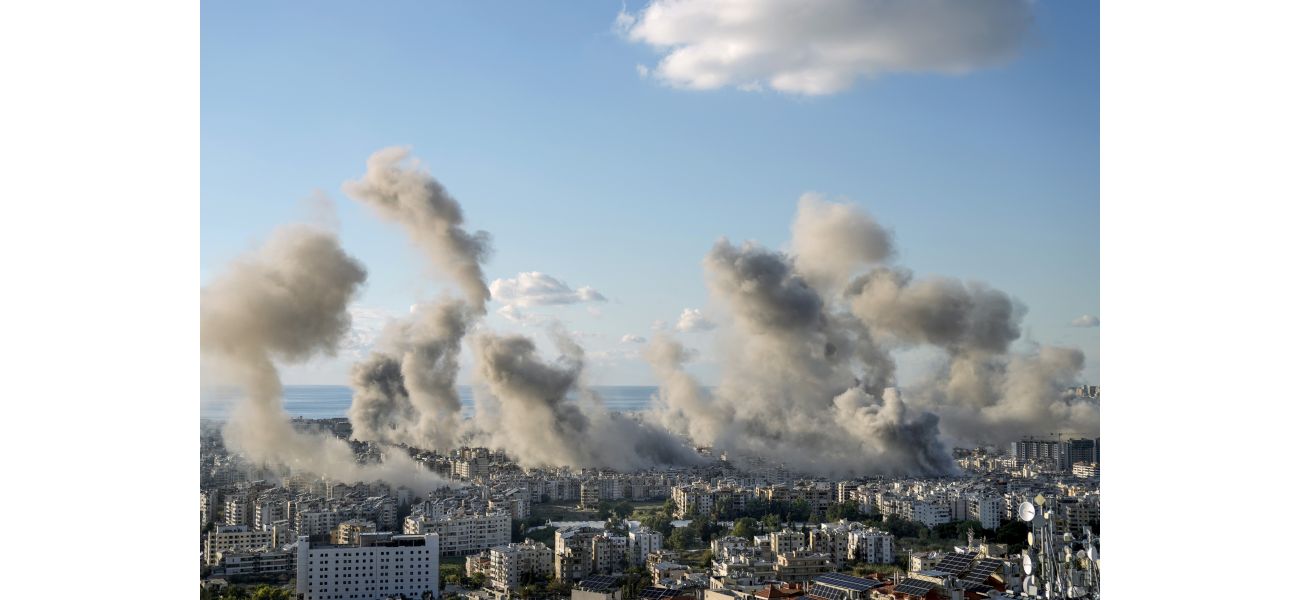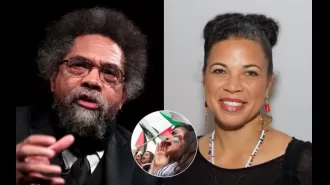Israeli government agrees to a ceasefire with Hezbollah, but with certain conditions.
Netanyahu says deal will let Israel concentrate on Iran, the supporters of Hezbollah.
November 26th 2024.

The situation in Lebanon has been tense for over a year now, with frequent clashes between Israel and Hezbollah. However, there may finally be a glimmer of hope for peace as the Israeli security cabinet has voted in favor of a ceasefire deal. This decision comes after months of a full-scale war that has resulted in the loss of thousands of lives.
According to an Israeli official who spoke to CNN, Prime Minister Benjamin Netanyahu had previously announced his recommendation to adopt a US-brokered ceasefire agreement with Hezbollah. This came as Israeli warplanes continued to strike targets in Lebanon, causing the death of at least 23 people. The Israeli military also issued multiple evacuation warnings, indicating their intention to inflict damage on Hezbollah until the very last moment before the ceasefire takes effect.
For the first time in this conflict, Israeli ground troops have reached parts of Lebanon's Litani River, which is a key aspect of the proposed deal. During a televised statement, Netanyahu stated that he would present the ceasefire to Cabinet ministers later that day, setting the stage for an end to the 14-month-long fighting. He also highlighted the progress Israel has made against its enemies in the region, including isolating Hamas in Gaza and turning their focus towards Iran, Hezbollah's main supporter and a major threat to Israel.
Netanyahu made it clear that Israel would not tolerate any violations of the ceasefire agreement and would respond with full force if needed. The specific terms of the deal have not been released, and it is not yet known when it will go into effect. However, it is important to note that this ceasefire does not affect Israel's ongoing war with Hamas in Gaza.
The evacuation warnings issued by the Israeli military caused panic and chaos among the residents of Lebanon. Many fled their homes, with some even tying mattresses to their cars as they tried to escape the bombings. This fear was compounded by the continuous rocket fire from Hezbollah, which was met with air raid sirens in northern Israel.
Despite these challenges, there is hope that the ceasefire deal will be accepted by all sides and bring an end to the Israel-Hezbollah war. The proposal calls for a two-month halt in fighting and requires Hezbollah to remove its armed presence from southern Lebanon, with Israeli troops also returning to their side of the border. Additionally, Lebanese troops and UN peacekeepers will be deployed in the area, and an international panel will monitor compliance from all parties.
However, there are still concerns about the implementation of this deal. Israel has insisted on the right to act if Hezbollah violates its obligations, while Lebanese officials have rejected this demand. Israel's Defense Minister has also warned that they will strike Hezbollah if the UN peacekeeping force does not effectively enforce the agreement. On the other hand, the EU's top diplomat has stated that the deal addresses Israel's security concerns and has urged for its prompt implementation.
It is clear that there is still a long road ahead before true peace can be achieved in this region. However, the approval of this ceasefire deal is a significant step towards ending the ongoing conflict between Israel and Hezbollah and preventing a wider war from breaking out.
According to an Israeli official who spoke to CNN, Prime Minister Benjamin Netanyahu had previously announced his recommendation to adopt a US-brokered ceasefire agreement with Hezbollah. This came as Israeli warplanes continued to strike targets in Lebanon, causing the death of at least 23 people. The Israeli military also issued multiple evacuation warnings, indicating their intention to inflict damage on Hezbollah until the very last moment before the ceasefire takes effect.
For the first time in this conflict, Israeli ground troops have reached parts of Lebanon's Litani River, which is a key aspect of the proposed deal. During a televised statement, Netanyahu stated that he would present the ceasefire to Cabinet ministers later that day, setting the stage for an end to the 14-month-long fighting. He also highlighted the progress Israel has made against its enemies in the region, including isolating Hamas in Gaza and turning their focus towards Iran, Hezbollah's main supporter and a major threat to Israel.
Netanyahu made it clear that Israel would not tolerate any violations of the ceasefire agreement and would respond with full force if needed. The specific terms of the deal have not been released, and it is not yet known when it will go into effect. However, it is important to note that this ceasefire does not affect Israel's ongoing war with Hamas in Gaza.
The evacuation warnings issued by the Israeli military caused panic and chaos among the residents of Lebanon. Many fled their homes, with some even tying mattresses to their cars as they tried to escape the bombings. This fear was compounded by the continuous rocket fire from Hezbollah, which was met with air raid sirens in northern Israel.
Despite these challenges, there is hope that the ceasefire deal will be accepted by all sides and bring an end to the Israel-Hezbollah war. The proposal calls for a two-month halt in fighting and requires Hezbollah to remove its armed presence from southern Lebanon, with Israeli troops also returning to their side of the border. Additionally, Lebanese troops and UN peacekeepers will be deployed in the area, and an international panel will monitor compliance from all parties.
However, there are still concerns about the implementation of this deal. Israel has insisted on the right to act if Hezbollah violates its obligations, while Lebanese officials have rejected this demand. Israel's Defense Minister has also warned that they will strike Hezbollah if the UN peacekeeping force does not effectively enforce the agreement. On the other hand, the EU's top diplomat has stated that the deal addresses Israel's security concerns and has urged for its prompt implementation.
It is clear that there is still a long road ahead before true peace can be achieved in this region. However, the approval of this ceasefire deal is a significant step towards ending the ongoing conflict between Israel and Hezbollah and preventing a wider war from breaking out.
[This article has been trending online recently and has been generated with AI. Your feed is customized.]
[Generative AI is experimental.]
0
0
Submit Comment





